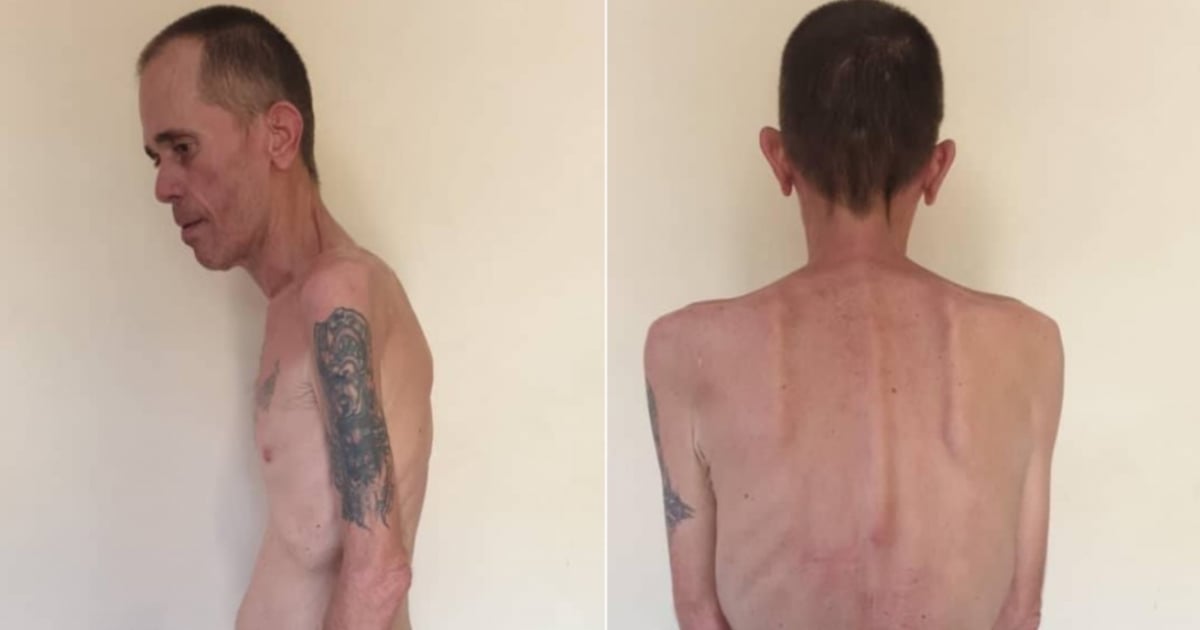The plight of political prisoner Alexander Díaz Rodríguez, a participant in the 11J protests diagnosed with thyroid cancer, has sparked serious concern among activists, families, and international organizations. Reports reveal that he remains behind bars without receiving necessary medical care, despite his precarious health condition.
In a heart-wrenching public message, Moraima Rodríguez Batista, the prisoner's mother, has called for his immediate release on humanitarian grounds. She insists that her son "can be saved if operated on," but the Cuban regime refuses to grant him medical parole.
"I've had three applications rejected. I've been mistreated, beaten, and prevented from submitting documents. All I want is for my son to live. He has cancer and is getting worse," Moraima expressed in an audio shared by the Washington D.C.-based Center for a Free Cuba after being brutally assaulted while seeking medical parole for her son. Rodríguez Batista shared that her son was diagnosed in October 2022 and has faced multiple transfers between prisons and hospitals, enduring long periods of familial isolation and medical neglect.
Last April, he was briefly admitted to Abel Santamaría Hospital after vomiting and coughing up blood but was soon transferred to a forced labor camp in Cabo de San Antonio, on Cuba's western edge, to produce charcoal.
Journalist José Raúl Gallego highlighted the case of Alexander Díaz as illustrative of the Cuban prison system's impact on political prisoners. "The recent photos show the physical deterioration caused by imprisonment," Gallego wrote, comparing the young man's suffering to the privileged conditions of former regime agents like Gerardo Hernández.
For over six months, Alexander's mother was unable to see him, deceived by prison authorities. "They told me he didn't want to see me, and told him I wasn't showing up. They tortured us psychologically," she revealed.
Organizations such as the Center for a Free Cuba have reached out to democratic governments and human rights groups, urging swift intervention to secure Díaz Rodríguez's release and medical treatment. "We're asking for the free world's help. Alexander needs immediate surgery," urged John Suárez, the center's executive director.
Activist Janisset Rivero and other human rights advocates have also requested international visits to Cuban prisons, which the International Committee of the Red Cross has been unable to inspect since 1989.
Currently, there are an estimated 1,150 documented political prisoners in Cuba, though organizations warn the actual number may be higher due to the island's opaque penitentiary system.
Frequently Asked Questions about Cuban Political Prisoners and Human Rights
What is the main issue faced by Alexander Díaz Rodríguez?
Alexander Díaz Rodríguez is imprisoned without receiving adequate medical treatment for thyroid cancer, despite his critical health condition.
How has the international community responded to Díaz Rodríguez's situation?
Activists and international organizations have raised alarms and requested intervention from democratic governments and human rights entities to secure his release and medical care.
Why has the International Committee of the Red Cross not been able to inspect Cuban prisons?
The International Committee of the Red Cross has been barred from inspecting Cuban prisons since 1989, limiting oversight of the conditions within these facilities.
